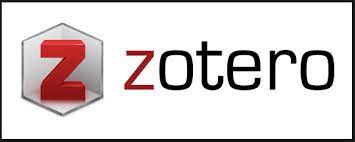THE EFFECT OF POLITICAL BUDGETING ON IMPROVING THE QUALITY OF POLITICAL EDUCATION IN SOCIETY: A LITERATURE REVIEW
Keywords:
Political Budgeting, Improving the Quality of Political Education, Society, Literature ReviewAbstract
This paper discusses the influence of political budgeting in supporting the improvement of the quality of political education in the community through literature analysis. Political education plays an important role in creating a society that is aware of its rights, obligations and responsibilities in a democratic system. The provision of a political budget is considered a fundamental element to support the implementation of political education programmes, such as training, seminars and counselling. The study results show that adequate budget allocations can improve public access to political information and strengthen active participation in the democratic process. However, the effectiveness of budget provision is influenced by transparent and accountable management. The risk is that the budget may not be targeted if there is misuse or certain political interests. Therefore, political budgeting has great potential to improve the quality of political education if accompanied by good management and consistent policy support.
Downloads
References
Aidt, T. S., Veiga, F. J., & Veiga, L. G. (2020). Political Budget Cycles and Election Outcomes. Public Choice,183 (3-4), 381-421. https://doi.org/10.1111/pubs.12254
Barberia, L. G., & Avelino, G. (2023). Political Budget Cycles and Social Outcomes: Evidence from Latin America. Latin American Politics and Society,65 (1), 1-25. https://doi.org/10.1017/lap.2022.32
Boote, D. N., & Beile, P. (2005). Scholars Before Researchers: On the Centrality of the Dissertation Literature Review in Research Preparation. Educational Researcher, 34(6), 3–15.
Campbell, D. E., & Niemi, R. G. (2020). The Effects of Civic Education on Political Knowledge. American Political Science Review,114 (4), 1014-1029. https://doi.org/10.1017/S0003055420000490
Carnwell, R., & Daly, W. (2001). Strategies for the Construction of a Critical Review of the Literature. Nurse Education in Practice, 1(2), 57–63.
Falguera, E. (2020). Political Finance and Its Effects on Democratic Governance. International IDEA. https://doi.org/10.31752/idea.2020.39
Galston, W. A. (2022). Funding Democracy: Public Investment in Developing Political Knowledge. Journal of Democracy,33 (2), 143-156. https://doi.org/10.1353/jod.2022.0024
Geboers, E., Geijsel, F., Admiraal, W., & Dam, G. (2022). Civic Education and Political Participation: A Systematic Review. Educational Research Review,35 . https://doi.org/10.1016/j.edurev.2021.100414
Giugni, M., & Grasso, M. T. (2021). The Oxford Handbook of Political Participation. Oxford University Press. https://doi.org/10.1093/oxfordhb/9780198832332.001.0001
Hooghe, M., & Dassonneville, R. (2022). Investing in Democracy: The Effects of Civic Education Funding on Political Knowledge. Political Behaviour,44 (3), 1289-1309. https://doi.org/10.1007/s11109-021-09714-w
Kahne, J., & Bowyer, B. (2022). Civic Education and Political Participation in the Digital Era. American Educational Research Journal,59 (1), 316-348. https://doi.org/10.3102/00028312211056319
Kim, Y. C., & Jung, J. Y. (2021). The Role of Political Budget Allocations in Enhancing Civic Engagement. Asian Journal of Political Science,29 (2), 184-202. https://doi.org/10.1080/02185377.2021.1934498
Klomp, J., & de Haan, J. (2021). The Impact of Political Budget Cycles on Education Outcomes. European Journal of Political Economy,67 . https://doi.org/10.1016/j.ejpoleco.2020.101958
Loader, B. D., Vromen, A., & Xenos, M. A. (2020). Civic Education and Political Participation in the Digital Age. Information, Communication & Society,23 (6), 871-889. https://doi.org/10.1080/1369118X.2020.1757134
Manning, N., & Edwards, K. (2022). Civic Education and Youth Political Engagement: A Meta-Analysis. Journal of Youth Studies,25 (2), 187-206. https://doi.org/10.1080/13676261.2020.1844170
Norris, P., & Abel van Es, A. (2021). The Impact of Political Finance Regulations on Voter Turnout. Electoral Studies,71 . https://doi.org/10.1016/j.electstud.2021.102300
Ohman, M. (2020). The Impact of Political Finance on Good Governance and Democracy. International IDEA. https://doi.org/10.31752/idea.2020.66
Patterson, T. E. (2021). Budgeting for Democracy: The Case for Increased Civic Education Funding. PS: Political Science & Politics,54 (3), 467-471. https://doi.org/10.1017/S1049096521000317
Persson, M. (2021). The Effects of Civic Education on Political Knowledge and Democratic Attitudes. Journal of Politics,83 (4), 1823-1839. https://doi.org/10.1086/715064
Pontes, A. I., Henn, M., & Griffiths, M. D. (2020). Civic Education and Youth Political Participation: A Comparative Study. Education, Citizenship and Social Justice,15 (3), 280-295. https://doi.org/10.1177/1746197919886644
Quintelier, E. (2020). The Effects of Civic Education on Political Participation. Political Behaviour,42 (1), 177-197. https://doi.org/10.1007/s11109-018-9503-3
Reichert, F. (2021). The Impact of Civic Education on Youth Political Efficacy. Journal of Youth Studies,24 (8), 1052-1070. https://doi.org/10.1080/13676261.2020.1768229
Smith, J. K., & Brown, A. L. (2021). Budgeting for Civic Education: Challenges and Opportunities. Journal of Public Affairs Education,27 (2), 167-185. https://doi.org/10.1080/15236803.2020.1852701
Soroka, S., & Wlezien, C. (2021). The Role of Political Budget Allocations in Shaping Public Opinion. American Journal of Political Science,65 (2), 443-458. https://doi.org/10.1111/ajps.12564
Torney-Purta, J., & Amadeo, J. A. (2023). Budgeting for Political Literacy: A Cross-National Analysis. Comparative Education Review,67 (1), 99-122. https://doi.org/10.1086/721288
van Biezen, I., & Rashkova, E. R. (2020). The Effects of Political Finance Regulations on Party Competition. Party Politics,26 (6), 775-786. https://doi.org/10.1177/1354068818818781
Veiga, L. G., & Veiga, F. J. (2023). Political Budget Cycles and Education Expenditure: A Meta-Analysis. European Journal of Political Economy,76 . https://doi.org/10.1016/j.ejpoleco.2023.102270








